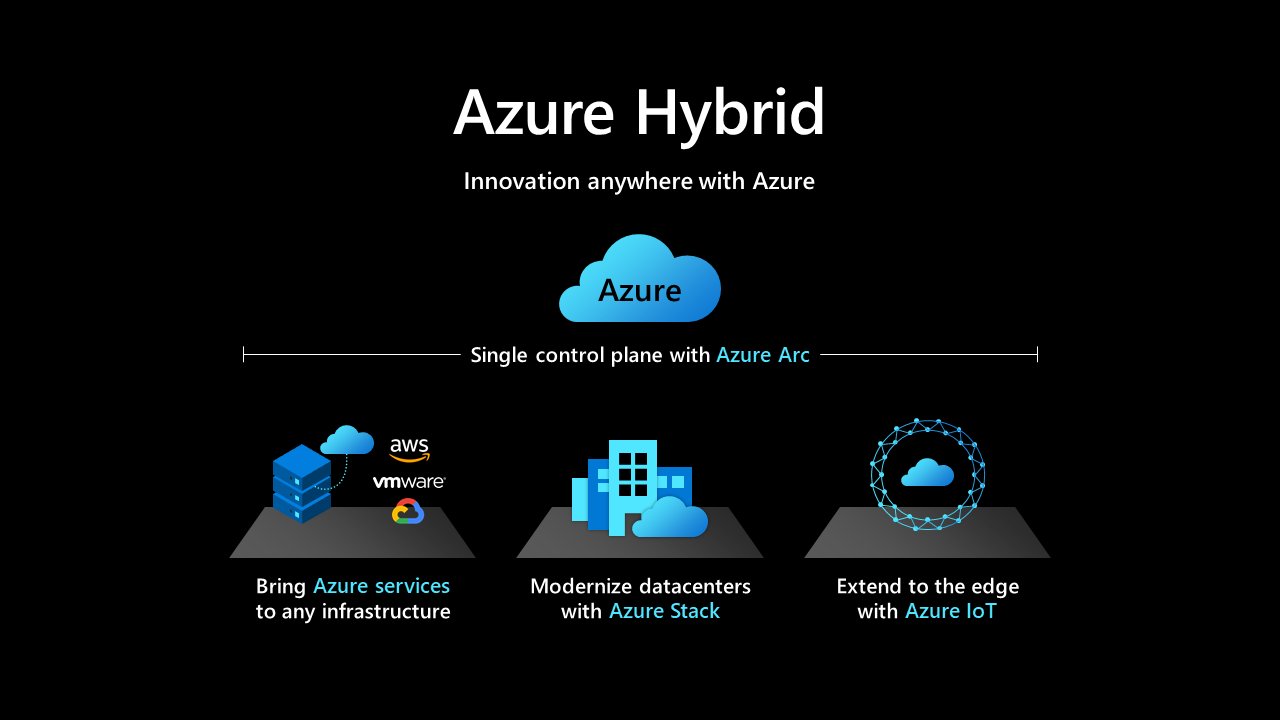As businesses continue to embrace digital transformation, the hybrid cloud model has become the preferred infrastructure solution for organizations looking to maximize flexibility, scalability, and security. Microsoft Azure stands out as a leading platform for creating robust hybrid cloud environments, enabling seamless integration between on-premises data centers and the cloud. In this blog post, we’ll explore the top five benefits of using Microsoft Azure for hybrid cloud solutions and why partnering with a certified Microsoft infrastructure partner can optimize this experience.
1. Unified Management Across On-Premises and Cloud
One of the biggest challenges in managing hybrid environments is the complexity of controlling both on-premises and cloud infrastructure. With Azure Arc and Azure Stack, Microsoft simplifies this process by providing centralized tools to manage resources across both environments. Azure Arc allows you to extend Azure services to any infrastructure, offering unified governance and compliance. Meanwhile, Azure Stack lets you run Azure services directly from your data center, providing consistent cloud services across hybrid environments.
You can refer to our post on Azure Stack here
2. Enhanced Security and Compliance
Data security remains a top concern for organizations adopting hybrid cloud solutions. Microsoft Azure offers advanced security features such as built-in identity management, encryption, and threat detection with services like Defender for Cloud and Microsoft Sentinel. These services help monitor and protect your data both on-premises and in the cloud. Additionally, Azure complies with over 90 industry certifications, ensuring that your hybrid environment meets stringent regulatory standards.
Refer to our post on Defender for Cloud here
3. Cost Optimization and Flexibility
Adopting a hybrid cloud with Azure enables businesses to optimize costs by scaling cloud resources up or down according to demand, while still maintaining critical applications on-premises. With Azure’s pay-as-you-go pricing model, organizations only pay for what they use, and tools like Azure Cost Management help monitor and control cloud spending.
4. Seamless Application Modernization
Many organizations have legacy applications that are essential to daily operations but need modernization to remain competitive. Azure’s hybrid cloud capabilities allow businesses to extend these applications to the cloud without needing to re-architect them completely. With services like Azure Kubernetes Service (AKS) and Azure Functions, businesses can containerize or modernize their applications at their own pace while ensuring integration with on-prem resources.
You can refer to our posts on AKS enabled by Azure Arc here and here
5. Business Continuity and Disaster Recovery
Ensuring business continuity is critical, and Azure provides robust disaster recovery solutions to protect both on-premises and cloud environments. Azure Site Recovery and Azure Backup enable real-time replication of data and applications, allowing businesses to recover quickly in the event of a disaster.
Microsoft Azure’s hybrid cloud capabilities provide the perfect blend of flexibility, control, and innovation for modern businesses. By working with a certified Microsoft infrastructure partner, organizations can unlock the full potential of Azure’s hybrid features, streamline management, enhance security, and optimize costs.
I hope this was informative for you, please let me know your comments.
See you soon
Karim Hamdy
Infrastructure Architect

